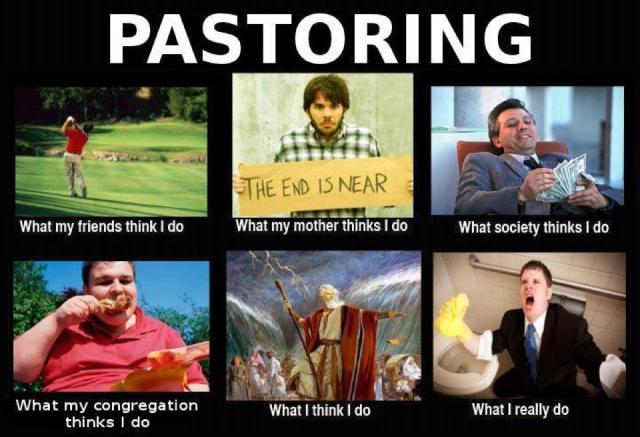“The authority by which the Christian leader leads is not power but love, not force but example, not coercion but reasoned persuasion. Leaders have power, but power is safe only in the hands of those who humble themselves to serve.”
I think that most of us fail to get a real grip on what pastoring is all about. And that is spiritually dangerous. Not only do we stunt our pastor’s growth, but we cripple ourselves, and we all flunk some important spiritual lessons. I want to share three basic things (there are more, believe me).
1) Our pastors are sinners.
Surprise! They are just like you and me– definitely not superheroes and certainly not always saintly. They will have their moments and struggles. We really need to understand this to fully receive their gifts. Just knowing this about them, prepares us to receive deeply and sincerely from their ministries.
It seems that their own battles are necessary to do a work of brokenness inside of them. Humility happens inside, and it often happens deep within.
2) Our pastors need to be prayed for.
What they do is probably one of the hardest, most challenging work on planet Earth. Deep down the good pastors know this. But they still wade courageously into the thick of things. Our real prayers can buttress and stabilize their lives. Pastors substantially encounter the darkness and do warfare for us.
Most have a family to pray for, but they also have a Church they must cover too. A local pastor must have solid elders and active intercessors, or they will certainly stumble and fall. Pastors need your grace, not your gripes–prayer, and certainly not your complaints.
(For a background read the story of Moses and his intercessors.)
3) Our pastors must be empowered by the Holy Spirit.
God’s work must be done His way. And the Lord repeatedly insists His leaders be filled with the Spirit. They receive power right from the true source. Again, Jesus, the True Shepherd gives power and wisdom and grace for each singular moment. A good pastor, over time and much prayer– develops discernment and an awareness for his flock. He learns to love them as he watches over them.
Much, much more could be written. There are so many facets to consider. I only want to encourage you to love and honor your pastor. When you do this, it will probably activate his gift, and fresh ministry will become available.
I suppose that the main thing is make sure you find a way to encourage them.
Real work will be done inside of you, and inside your pastor as well.
“Then I will appoint responsible shepherds who will care for them, and they will never be afraid again. Not a single one will be lost or missing. I, the Lord, have spoken!”
Jeremiah 23:4
ybic, Bryan

My own pastor–David and Karen Taylor, CCC, Homer Alaska







